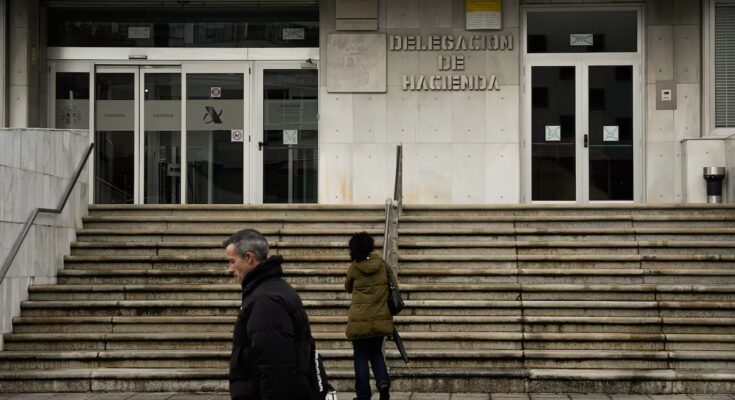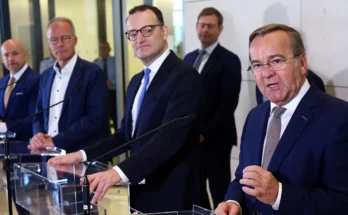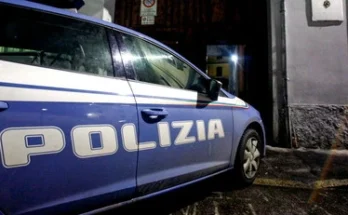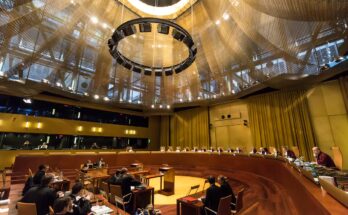In January 2019, two agents from the Central Operational Unit of the Civil Guard (UCO) arrested Asdrúbal Casares, then head of the Vigo Revenue Agency delegation, with more than 30 years of career as a tax fraud expert. The inspector, identified as the main defendant in an alleged corrupt plot to falsify tax returns in exchange for money, spent almost three months in Teixeiro prison in La Coruña. Almost a decade has passed since the investigation, which began before Casares’ arrest and which saw his ex-partner and two tax consultants as the main accomplices, and the investigations still raise questions. The Prosecutor’s Office requested six years’ imprisonment for Casares for the crimes of corruption, disclosure of information, prohibition on negotiations with officials and money laundering, with the mitigating circumstance of undue delays. And while the defense believes that the case has collapsed due to delayed investigations due to lack of evidence for the prosecution and is asking for it to be dismissed for the umpteenth time.
On the day of his arrest, former inspector Casares, accustomed to dealing with confidential matters with judges and prosecutors, went to his Treasury office as he does every morning at 7:30. That morning the officers forced him to return home and there they waited for the arrival of the judicial secretary and a public defender to assist the prisoner. All their belongings, computers and drawers were searched for documents, including cash. Then they searched his office at the Revenue Agency and he spent his first night as a prisoner at the Pontevedra Command.
The inspector’s fall from grace was limited to at least a dozen complaints from businessmen alleging extortion, even as the number of prosecution witnesses and defendants dwindled over the months due to the flimsiness of the evidence. One of the complaints, on which the case is mainly based, is that presented by a well-known businessman from the city who had been accused of a million-dollar fraud on community VAT and who was finally acquitted. At the time of the inspector’s arrest, the Treasury was obliged to return approximately eight million euros to the complainant.
Nine years after the start of these proceedings and with more shadows than lights on the alleged corrupt conspiracy, the case faces its final phase, awaiting a jury court to try Casares probably in 2026. The prosecutor concludes that the defendant operated with two consultants involved, Francisco González del Pino and Pablo González Tenorio, to whom he passed information on companies suspected of tax fraud. In exchange for advice and mediation so that the fines were not so high, the defendants allegedly demanded money from the entrepreneurs investigated by the Treasury.
According to the UCO investigation, both accused entrepreneurs were friends of Asdrúbal Casares and through him they knew which companies were subject to controls by the Revenue Agency. They contacted them to ensure that the tax regularizations were successful in exchange for a financial sum. Once they had made contact with the representatives of these companies, the defendants offered them the advice of González del Pino and another of which Beatriz Zunzunegui Caamaño, Casares’ former partner, was the representative.
In 2016, according to the prosecutor, the Treasury inspector provided the two entrepreneurs involved with information about a company based in Santiago, which was the subject of investigations by the Treasury and against which he had filed a complaint with the Prosecutor’s Office. With this confidential information from the dossier, both contacted the tax advisor of the person concerned to warn him of the possible criminal consequences of the inspection and to offer to carry out the procedures through a person with “a lot of influence” who could resolve the matter in the most favorable way. “They offered to help him in this process in exchange for money,” although the prosecutor admits in his letter that there is no evidence that the consultant or the company involved ever paid Casares for the mediation.
According to the prosecutor’s report, the accused had already provided, before 2016, tax advice to numerous companies under investigation upon payment of a fee through the signature of one of his accomplices or of the company owned by his wife. According to the Public Prosecutor, who withdrew the charge of criminal organization, Casares never requested the declaration of compatibility to combine his activity as a public employee with that of a tax consultant, nor with any other public or private activity. However, he claims that with these actions that he has carried out for years he has obtained additional income which he has added to his salary.
The Prosecutor’s Office accuses the former inspector and his wife (from whom he separated in 2016) of attempting to “hide” the money by transferring it to a bank account in Switzerland. Some of the expatriated money then returned to their accounts via transfers from the Swiss entity. The Prosecutor’s Office charges the former Treasury official with crimes of corruption, disclosure of information, activities prohibited for officials and money laundering and requests sentences for a total of six years and three months in prison, as well as fines of over 232 thousand euros.
He considers the entrepreneur Francisco González del Pino a necessary collaborator in the crimes of corruption and activities prohibited for officials and asks for a sentence of two years in prison and a fine for a total of 21,000 euros. For Pablo González he asks for one year of imprisonment and a fine of 1,500 euros and for Beatriz Zunsunegui a sentence of three years and three months of imprisonment for money laundering and a fine of 194,602 euros.
“There was a deliberate delay in exculpatory evidence”
Casares’ defense defended the lack of evidence for the accusation and therefore his innocence in “an event with great media impact that destroyed his personal and professional life”. The former inspector has fought in recent years to return to his place in the Vigo delegation but his requests for employment were rejected in court and in the meantime he was forced to retire last year when he turned 65.
“To justify his detention, Mr. Casares was accused of extorting both taxpayers and AEAT officials, of running a criminal organization that had twenty tax inspectors throughout Spain, of having bank accounts in Arab countries, yachts and luxury cars, or of having carried out unjustified money movements, but surprisingly these accusations vanished due to lack of evidence,” claims the defense of the former inspector.
In the statement of charges, the defense claims that in the prosecution report both the Prosecutor’s Office and the State Attorney’s Office “provided evidence in favor of the accused with deliberate delay”. The investigating judge asked the AEAT National Inspection Office (ONIF) what access Casares had made to the controversial tax files and concluded that they did not exist. “That report was withheld by the UCO for a year and a half until a new investigating judge requested that information again,” the defense points out in its report. “Surely someone should justify this scandalous delay,” he underlines.
The defense also underlines that the indictments “assume never proven movements of money as proven facts and, on the basis of this gratuitous estimate, both reports are articulated as completely incomprehensible due to a total lack of precision and rigor”. And he underlines that the prosecution’s motivation focuses on never-proven money movements.”



